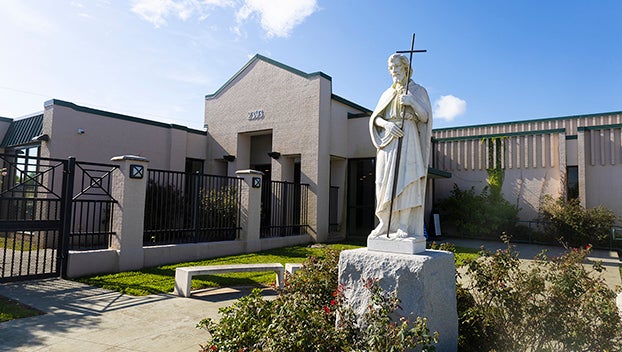Kaiser snarled in court
Published 12:00 am Saturday, April 29, 2000
LEONARD GRAY / L’Observateur / April 29, 2000
GRAMERCY – New labor negotiations aimed at settling the Kaiser strike are scheduled for May 10-12 in Houston, according to the United Steelworkers of America.
Earlier this week, the 15-month lockout was allegedly declared illegal by a federal agency.
Kaiser spokesman Scott Lamb said the company was notified by the National Labor Relations Board that 22 of 24 allegations made by the union in connection with its 19-month-old strike have been dismissed.
The remaining two charges will be referred to trial before an administrative law judge. No trial date has been set.The two charges which remain, according to Lamb, are the company’s effort to negotiate plant-specific productivity improvements while rejecting the union’s national pattern approach and the company’s reliance on a mutually established work measurement system that has been in place for decades to set the wage rates of newly-created jobs.
Kaiser president Ray Milchovich commented, “We are confident that the allegations on the remaining two items are groundless and that, following a trial, they will be dismissed as well.”On the other hand, David Foster of the USWA said the NLRB decision declared the 15-month-old plant lockout of the workers to be illegal, with a potential remedy being full back pay and benefits retroactive to Jan. 14, 1999.Foster quoted a letter from NLRB General Counsel Leonard R. Page whichstated, in part: “It was concluded that the Employer’s lockout in support of its Dec. 17, 1998 bargaining proposal which included proposals whichallegedly altered the scope of the collective bargaining unit, and lacked sufficient specificity to make it capable of acceptance by the Union, raised issues under the National Labor Relations Act warranting Board determination based on record testimony developed at a hearing before an administrative law judge.”The NLRB action came after seven months of review. Foster said thepotential back-pay liability for its five plants across the country all out on strike is now more than $270 million and continues to grow by nearly $500,000 per day.
Foster added, “In light of the NLRB action and the staggering consequences for the company, I once again call on Kaiser to end its illegal lockout immediately.”Milchovich responded, “We believe the decision will have no financial impact on the company. In the meantime, the affected plants continue to operatenormally with temporary employees.”On Tuesday, the union presented Kaiser with a five-year proposal which, Foster said, would boost productivity and provide the company with annual cost savings of $10 million. In response, Foster said, Kaiser negotiatorswalked out.
Foster said, “I find it incredible that Kaiser has chosen to spurn a negotiated settlement while it continues its illegal lockout of 2,900 USWA members.
Kaiser has made it very clear that its real agenda in its war on its workers is destruction of their union and an absolute right to cut off all health insurance for 9,000 retirees and their spouses.””That is absolutely untrue and not part of our proposal we made this week,” Lamb responded, adding as well that Kaiser had made a proposal late Tuesday evening which was rejected by the union.
Meanwhile, at Gramercy’s Kaiser plant, reconstruction continues in the area affected by the July 5, 1999 explosion for which Kaiser was cited by the Mine Safety and Health Administration for various violations before and after the blast itself.
Kaiser Aluminum was fined a total of $533,000 for 23 violations of federal regulations, stemming from the explosion that injured 29 of these temporary workers.
Local 5702 president Wayne Stafford said the decision to refer the remaining charges to trial is “a bargaining chip we can use.”Stafford continued, “We have hopes they’ll take a sensible look at this” and return to the bargaining table.
“Our goal has always been to get a fair and just contract,” Stafford concluded.
Lamb concluded, “Any determination of legality or illegality of the lockout is several years away.”
Return To News Stories





